A blood glucose monitoring system consists of a glucometer (glucose meter), test strips, and a lancet device. When a small drop of blood is placed on the test strip, the glucometer measures the glucose concentration and displays the reading within seconds. Advanced models offer Bluetooth connectivity, memory storage, and mobile app integration for easy tracking.
Key Features
✅ Fast & Accurate Readings – Provides glucose levels in seconds
✅ Compact & Portable Design – Easy to carry for on-the-go monitoring
✅ Memory Storage – Saves past readings for better tracking
✅ User-Friendly Display – Large screen for clear visibility
✅ Bluetooth & App Connectivity – Syncs data with mobile health apps
✅ Minimal Blood Sample Needed – Requires only a small drop for testing
Benefits of a Blood Glucose Monitoring System
✔ Helps Manage Diabetes – Keeps blood sugar levels in check
✔ Prevents Complications – Reduces risks of hyperglycemia and hypoglycemia
✔ Encourages Healthy Lifestyle Choices – Supports dietary and medication adjustments
✔ Convenient & Quick – Allows self-monitoring without frequent lab visits
✔ Ideal for Home & Travel Use – Ensures 24/7 monitoring anywhere
Who Should Use a Blood Glucose Monitoring System?
🔹 Diabetics (Type 1 & Type 2) – Essential for daily glucose tracking
🔹 Pre-Diabetic Individuals – Helps prevent progression to diabetes
🔹 People on Insulin Therapy – Ensures proper insulin dosage adjustments
🔹 Health-Conscious Individuals – Tracks glucose levels for overall well-being
How to Use a Blood Glucose Monitor
- Wash hands and prepare the device
- Insert the test strip into the glucometer
- Prick the fingertip using the lancet device
- Place a drop of blood on the test strip
- Wait for the reading to appear on the display
- Record the result or sync it with an app for tracking
Specifications
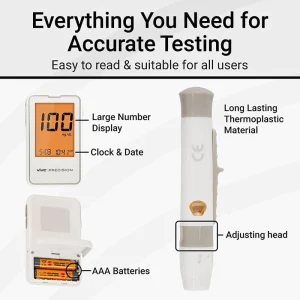
🔸 Measurement Time: 5-10 seconds
🔸 Blood Sample Required: Minimal (0.5-1.5 µL)
🔸 Storage Capacity: Up to 1,000 readings
🔸 Connectivity: Bluetooth, USB, or mobile app sync
🔸 Power Source: Rechargeable battery or replaceable batteries
A Blood Glucose Monitoring System is a crucial tool for anyone managing diabetes or blood sugar levels. With its fast, accurate, and convenient features, it helps users stay in control of their health. Whether at home, work, or while traveling, a reliable glucose monitor ensures peace of mind and better diabetes management.
Frequently Asked Questions (FAQs)
1. What is a blood glucose monitoring system?
A blood glucose monitoring system is a device that helps measure blood sugar levels. It includes a glucometer, test strips, and a lancet to collect a small blood sample for testing.
2. Who should use a blood glucose monitor?
✅ Diabetics (Type 1 & Type 2) – For daily glucose monitoring
✅ Pre-Diabetic Individuals – To track and prevent high sugar levels
✅ People on Insulin Therapy – To adjust insulin dosage accurately
✅ Health-Conscious Individuals – To monitor glucose fluctuations
3. How does a blood glucose monitor work?
When you prick your finger using a lancet, a small drop of blood is placed on a test strip inserted into the glucometer. The device then analyzes the blood sample and displays the glucose level within seconds.
4. How often should I check my blood sugar?
It depends on your condition:
✔ Type 1 Diabetes – 4 to 10 times a day (before meals, after meals, before exercise)
✔ Type 2 Diabetes (on insulin) – Several times a day
✔ Type 2 Diabetes (not on insulin) – 1-2 times per day or as recommended by a doctor
✔ Pre-Diabetic Individuals – Periodically to track sugar levels
5. What is the normal blood sugar range?
✔ Fasting (before eating): 70-99 mg/dL
✔ After meals (postprandial): Below 140 mg/dL
✔ For diabetics: 80-130 mg/dL before meals, below 180 mg/dL after meals
6. Can I use the same test strip multiple times?
No. Test strips are single-use only and should be disposed of after testing.
7. Can I reuse a lancet?
It’s not recommended. Lancets should be used only once to prevent infections.
8. Do I need a prescription to buy a blood glucose monitor?
No, most blood glucose meters and test strips are available over the counter at pharmacies or online.
9. What should I do if my blood sugar reading is too high or too low?
✔ High blood sugar (Hyperglycemia) – Stay hydrated, exercise, and take prescribed medication
✔ Low blood sugar (Hypoglycemia) – Consume fast-acting carbs like fruit juice or glucose tablets
10. How do I ensure accurate readings?
🔹 Wash hands before testing
🔹 Use fresh test strips (check expiration date)
🔹 Calibrate the meter if required
🔹 Follow manufacturer instructions
11. Can I test my blood sugar on areas other than my fingertip?
Yes! Some monitors allow alternative site testing (AST), such as on the palm, forearm, or thigh, but fingertip readings are usually more accurate.
12. How do I sync my glucose monitor with a smartphone app?
Many modern glucometers come with Bluetooth or USB connectivity, allowing users to sync readings with a mobile health app for easy tracking.
13. How long do test strips last?
Test strips usually have an expiration date of 3-6 months after opening. Always store them in a sealed container to prevent exposure to moisture.
14. How do I clean my blood glucose meter?
✔ Wipe the surface with a damp cloth (avoid submerging in water)
✔ Use alcohol wipes to disinfect the test strip port occasionally
15. Where can I buy a blood glucose monitoring system?
You can purchase a glucometer, test strips, and lancets from pharmacies, medical supply stores, or online retailers.
Take control of your health today—monitor your blood sugar with accuracy and ease!

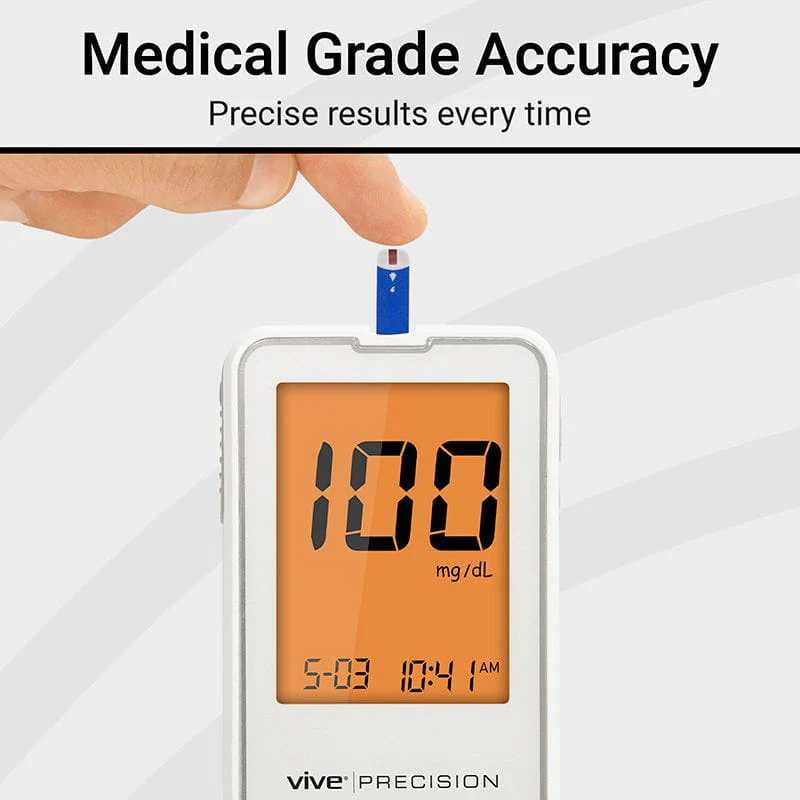
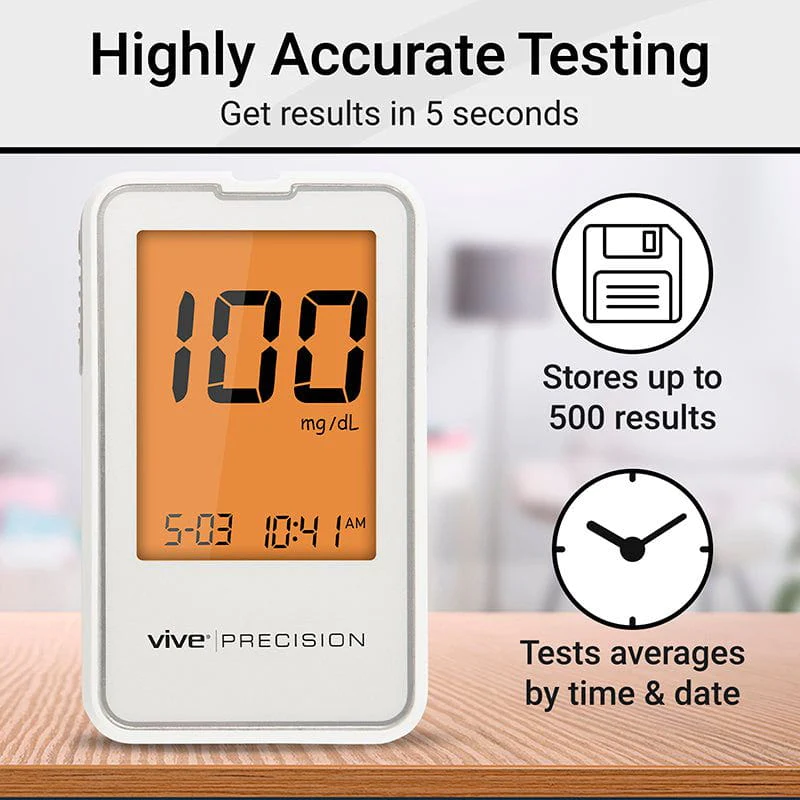
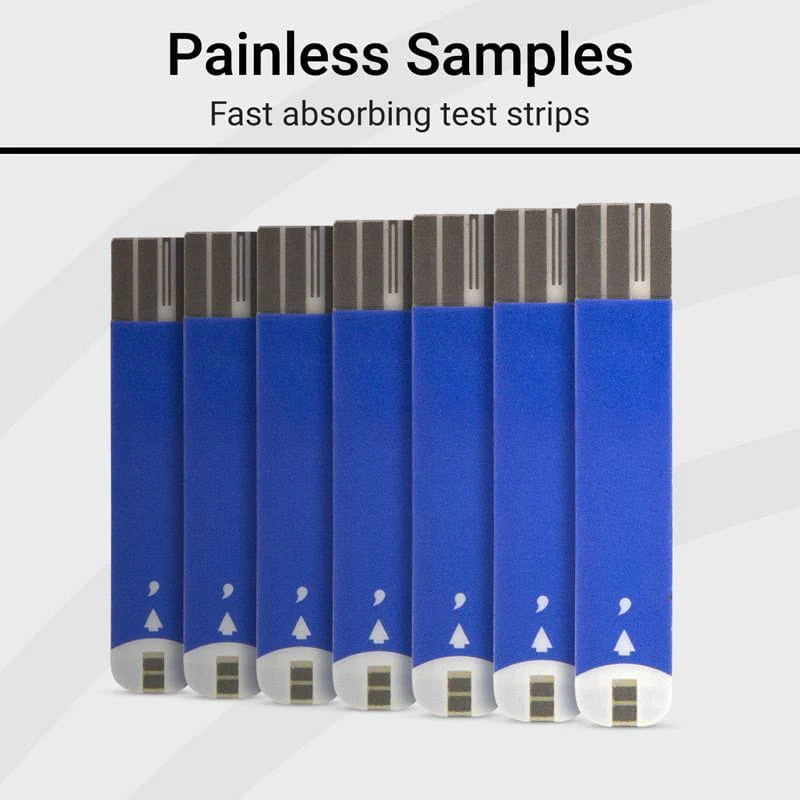
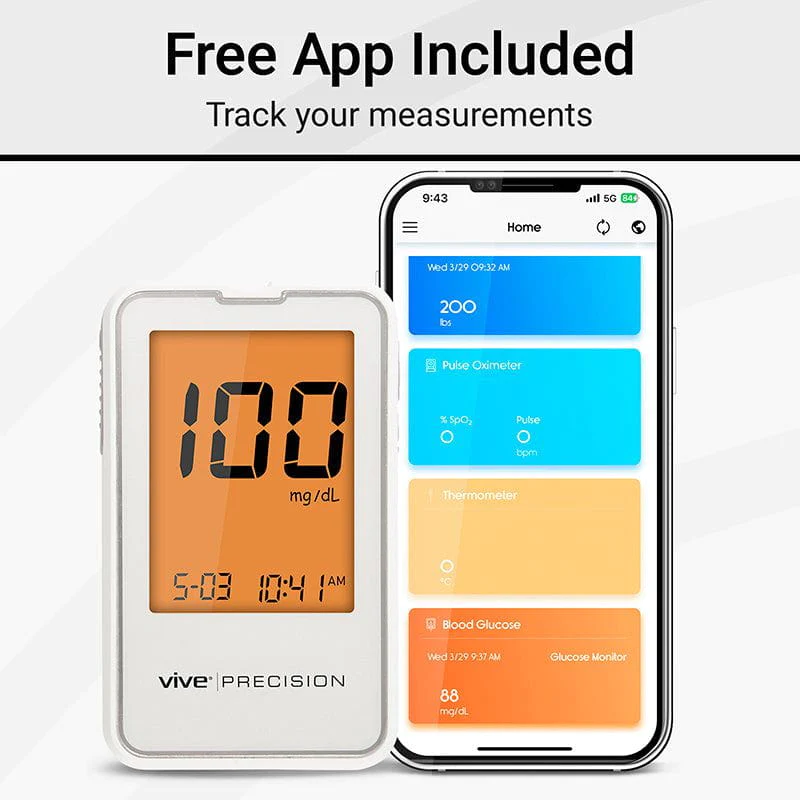
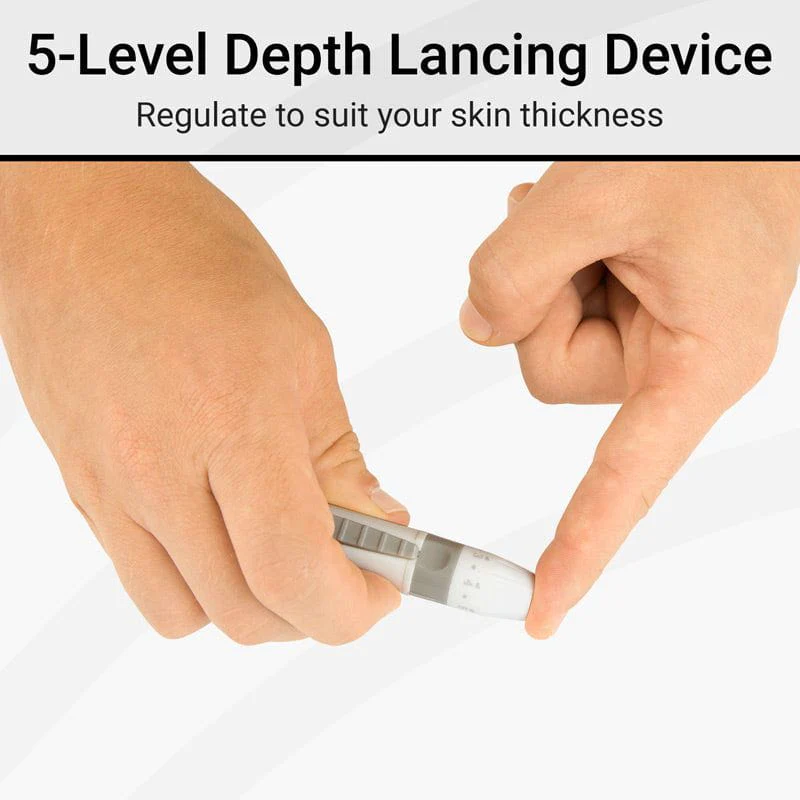

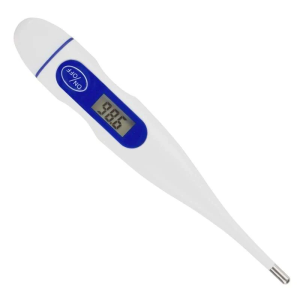
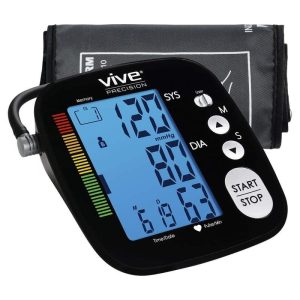
Reviews
There are no reviews yet.